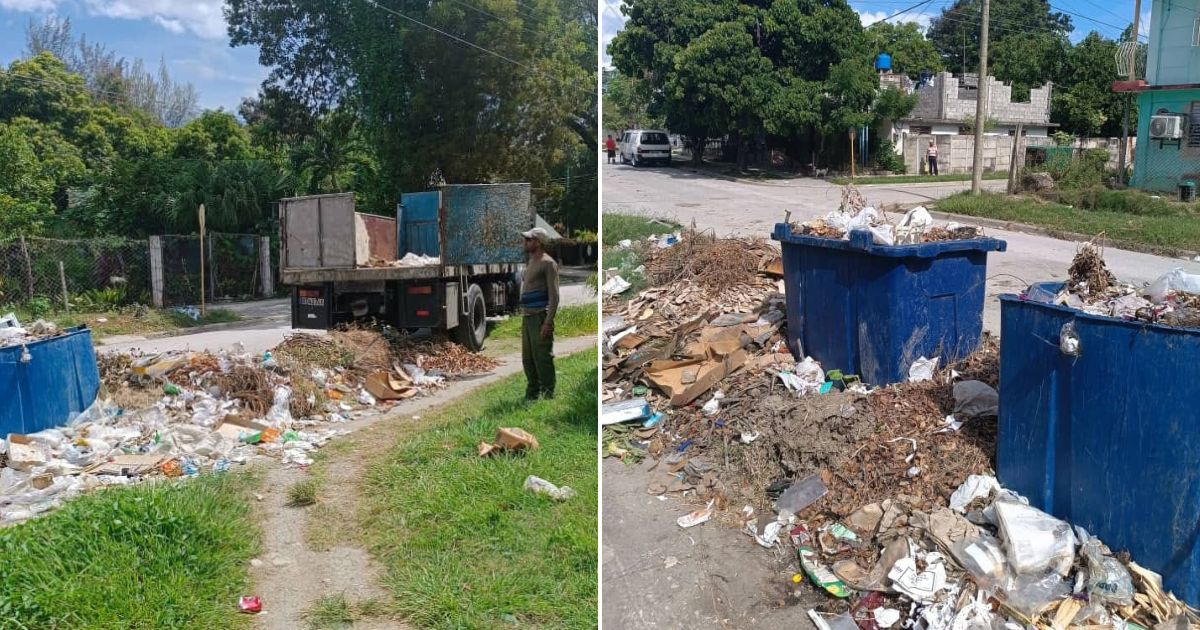
The government of the city of Guantánamo, which has repeatedly shown its inability to manage solid waste collection, has had to turn to a small and medium-sized enterprise (mipyme) to assist with this vital task for the health of the population.
The pro-government journalist Miguel Reyes reported last Friday on Facebook that the small and medium-sized enterprise Transnovoa contributed a truck to the sanitation of the city of Guantánamo, presenting this initiative as an achievement of non-state economic management.
Although the publication touts an idea aimed at improving the city's health, it also highlights the regime's inability to manage solid waste collection. If an efficient system were in place, there would be no need for the involvement of a private economic actor.
Additionally, the shared images suggest that the trash had been piling up for several days without the government finding a solution.
Reyes also noted that "several truckloads of garbage were collected at the Cuartel and 14 Norte site" and acknowledged that the initiative is "part of the city's sanitation strategy, which is influenced by various epidemiological viruses due to mosquitoes and unsanitary conditions."
The province of Guantánamo is one of the Cuban territories that has confirmed the circulation of the Oropouche virus among the population, making the contribution of the micro, small, and medium-sized enterprise Transnovoa part of the regime's desperate efforts to control this dangerous disease in the eastern part of the island.
In the comments section, Zulema Matos Columbié expressed her opinion that the city of Guantánamo currently faces what she called an "environmental disaster," citing "those open-air dumps" as the causes.
He also pointed out that the lack of garbage bins at food vending locations is to blame, and emphasized that government inspectors must ensure their installation and maintenance.
Similarly, Marilyn Hamud emphasized that the current state of solid waste collection demonstrates that "the State cannot handle everything; it does not have the necessary resources to meet so many demands, and the situation is becoming chaotic. They do not have the solution at hand, and unsanitary conditions and epidemics are increasing daily."
As a solution, he suggested that the regime should allow the establishment of a small and medium-sized enterprise specialized in waste collection.
Scenes of accumulated garbage in public spaces are recurring in several Cuban cities.
Recently, a man refuted the claim that Santiago de Cuba is one of the cleanest cities in the country, while also showcasing and condemning the dumps that are present in the historic center of the city.
In the video, a male voice can be heard walking through various streets of the city while filming the accumulation of solid waste mixed with wastewater, as reported by communicator Yosmany Mayeta on Facebook.
Filed under: